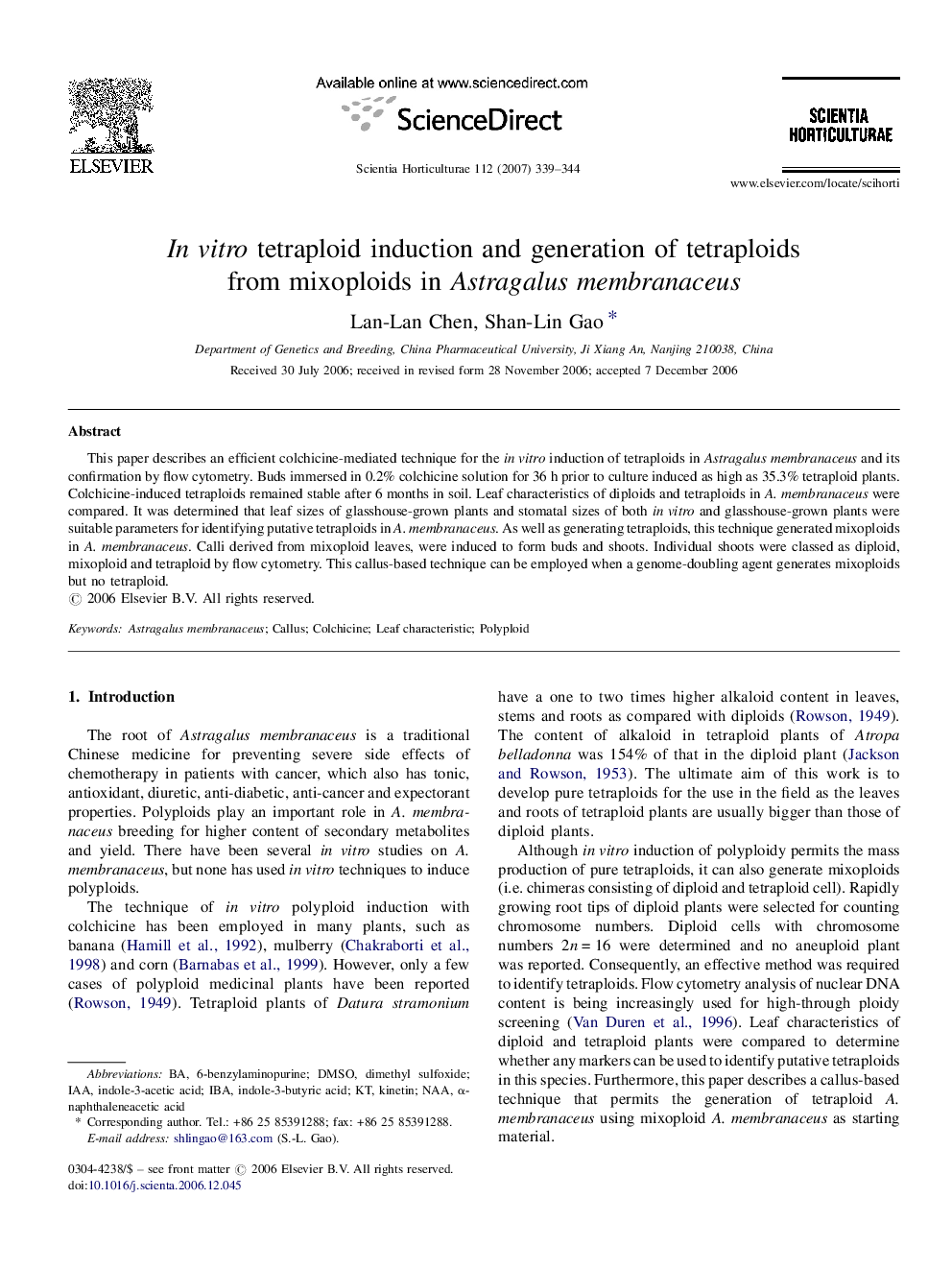| Article ID | Journal | Published Year | Pages | File Type |
|---|---|---|---|---|
| 4570024 | Scientia Horticulturae | 2007 | 6 Pages |
This paper describes an efficient colchicine-mediated technique for the in vitro induction of tetraploids in Astragalus membranaceus and its confirmation by flow cytometry. Buds immersed in 0.2% colchicine solution for 36 h prior to culture induced as high as 35.3% tetraploid plants. Colchicine-induced tetraploids remained stable after 6 months in soil. Leaf characteristics of diploids and tetraploids in A. membranaceus were compared. It was determined that leaf sizes of glasshouse-grown plants and stomatal sizes of both in vitro and glasshouse-grown plants were suitable parameters for identifying putative tetraploids in A. membranaceus. As well as generating tetraploids, this technique generated mixoploids in A. membranaceus. Calli derived from mixoploid leaves, were induced to form buds and shoots. Individual shoots were classed as diploid, mixoploid and tetraploid by flow cytometry. This callus-based technique can be employed when a genome-doubling agent generates mixoploids but no tetraploid.
